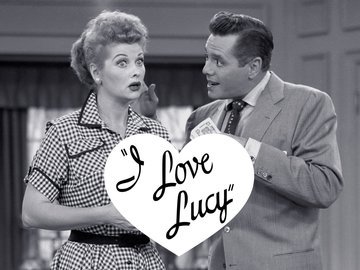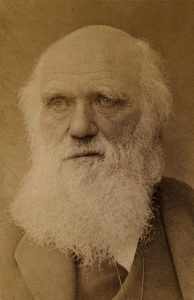Winner of the Fall 2016 StMU History Media Awards for
Best Explanatory Article
Most Captivating/Engaging Article
Best Use of Multiple Images
Best Introductory Paragraph
Best Overall Research
“Lucy, you got some splainin’ to do!” These words were heard by families across America repeatedly in the 1950s. Uttered in a thick Latin accent by none other than Ricky Ricardo, the bongo playing, bandleader, Cuban husband of the flighty, redheaded, Lucy Ricardo on the 1950s television situation comedy, I Love Lucy. This popular television comedy entered the homes of people across America in the years 1951 to 1957. In the six-year span that the show was on the air, it never ranked lower than third nationally among television programs.1 So the question arises: what was it about this show that was so popular among the families in America? The answer to that is simple. I Love Lucy told the tale of a common housewife who dreamed of more than cooking and cleaning; she wanted to be a star. Housewives throughout America related to the character of Lucy Ricardo who longed for more in life, in the period of American history that has been called The Affluent Society.

Lucille Ball was born in Celoron, New York in 1911 to a family who believed that hard work was needed to achieve success. She found work in movies and on the radio, and had a recurring role on the hit CBS radio show, My Favorite Husband.2 Desi Arnaz was born in Santiago de Cuba, Cuba in 1917 to a wealthy family. His father was a politician and landowner and his mother was an heiress. The Revolution of 1932 in Cuba hit the Arnaz family hard, and they were ultimately forced to move to Miami, Florida.3 Arnaz met Ball in 1940. The two immediately connected with one another, and after a five-month whirlwind romance, the couple was married.
However, the marriage was rocky from the start, and it did not help that Ball was forced to stay home due to her acting and radio career, while Arnaz toured with his band. When the director of My Favorite Husband offered Ball the opportunity to take the show to the new medium of television, she jumped at the chance on the one condition that Arnaz be cast for the role of her on-screen husband. Ball was looking for a way to save her marriage, and she believed that working with Arnaz and having him close to home was the way to do it. CBS was hesitant to agree to her request, but they wanted Ball so they decided to film a pilot for the show.4 With her hardworking, no-nonsense family background, Ball was determined to make the show a success. Arnaz and Ball became Lucy and Ricky Ricardo on the immediate hit television show that would run for the next six years.
Family life in the 1950s focused mostly on men working while women stayed home, kept the house, and raised children. Pediatrician Dr. Benjamin Spock published Baby and Child Care, a book that highlighted an approach to raising children that was child-centered as opposed to parent-centered. Dr. Spock viewed the role of the mother as belonging at the center of the household while the husband was the breadwinner and had very little to no interaction in raising children.5 This view began to generate dissatisfaction among women who longed for a more fulfilling life.

I Love Lucy focused on the life of Lucy Ricardo, a ditzy housewife with dreams of fame and fortune, and her Cuban, bandleader husband Ricky. Lucy was far from the typical housewife; she was not satisfied with simply staying home and keeping house while her husband worked or went out with friends. She had quite the imagination and came up with schemes to break into show business, which usually caused tension between her and Ricky. Lucy brought the desires for something more that were locked away in the hearts of housewives across America, and she brought those desires out into the public eye. While she did play her role in an extremely comedic way, she somehow always returned to the dutiful housewife of the 1950s.6

Producers were not sure what the audience would make of Arnaz. He was a television first in many ways; he was the first Hispanic actor welcomed into the homes of the American people on a regular basis. It was the first time many had ever heard a Latino accent, and Arnaz did not fit the typical Hispanic stereotype that most Americans held at that time. Arnaz was handsome, smart, dignified, warm, responsible, employed, loyal, and married. The producers were also concerned about the audience viewing the Ricardo’s marriage as interracial, and this was not something that had ever before been aired openly in movies or on television. Despite these obstacles, Arnaz was treated as an equal white American, and accepted graciously throughout the nation.7

During its six-year reign, I Love Lucy ranked in the top three spots nationally among television programs. Exceptional talent in acting, comedic timing, writing, directing, editing and above all, being relatable, made I Love Lucy an instantaneous success.8 Lucille Ball accepted her role as the zany housewife, Lucy Ricardo, and ran with it. She was not afraid to put herself out there, work hard, and make her dreams come true. Housewives across America finally had a female television star that they were able to relate to; someone who knew there was more to life than cooking and cleaning. With this in mind, maybe, just maybe, they too could stand up and do something more.
- Salem Press Encyclopedia, January 2016, s.v. “I Love Lucy (TV),” by Mary Hurd. ↵
- Salem Press Encyclopedia, January 2016, s.v. “Lucille Ball,” by Richard Adler. ↵
- American National Biography (From Oxford University Press), 2010, s.v. “Desi Arnaz,” by Tinky “Dakota” Weisblat. ↵
- Gigi Anders, “’Luuu-cy!’,” Hispanic 14, no. 11 (November 2001): 44-46. ↵
- Alan Brinkley, American History: Connecting the Past Volume 2, 15 edition (New York: McGraw-Hill Education, 2014), 764. ↵
- Salem Press Encyclopedia, January 2016, s.v. “I Love Lucy (TV),” by Mary Hurd. ↵
- Gigi Anders. “’Luuu-cy!’,” Hispanic 14, no. 11 (November 2001): 43. ↵
- Salem Press Encyclopedia, January 2016, s.v. “I Love Lucy (TV),” by Mary Hurd. ↵



106 comments
Jose Chaman
This is the first time I read about I Love Lucy. I had never heard of the show before, however this article does a great job portraying it. I think it is very important to highlight that this show brought a great message to society and to represent housewives. It is interesting to know that Lucy became a model for many women in the United States, this article has done an incredible job honoring this historical fact.
Rahni Hingoranee
I have heard of I Love Lucy before only through my parents who watched it. I never knew the plot and message it portrayed. That makes me like it even more. It is no wonder that the show became so successful. It is crazy that so recently in history women were seen as housewives and that was their role. I think this show really defines the importance of change for women.
Cristianna Tovar
I Love Lucy is an iconic, funny, and adventurous television show. Before reading this article, I had no idea that Desi Arnaz was the first Hispanic actor that many Americans watched regularly. I thought it was interesting that he didn’t fit the typical Hispanic stereotype that Americans had at the time because it allowed people to watch the show without associating Hispanics with any negative connotations. Overall, this was an excellent article that highlighted that Lucy was a role model for many women across America.
Audrey Uribe
I loved watching reruns of I Love Lucy as a kid! The show was more modern for its time and had great humor even for someone young to understand. The background of the show was great and the under lining message of women’s rights is something that was quite taboo for that time. I have a lot of appreciation for the show.
Olivia Tijerina
Not a spot on coincidence indeed for the television show to be amongst the top three nationally for six years. Most of each housewife had an appeal for a woman like Lucy whom wanted more. The ending is marvelous one because the article showed the effects on what television impacted these woman. What is also notable is the is for this television show to be the first from also the male perspective too; the show became the first for change.
Felicia Stewart
I remember watching I Love Lucy with my great grandparents when I was growing up, which is what sparked me to read this article! I always saw Lucy as an inspiration. Lucy did not have a problem standing up and breaking these barriers that were set for many women during this time period. She was a housewife but she still had dreams and goals of her own that she wished to pursue.This show has become one of the most popular and I believe to be a stable around many houses in the United States.
Cameron Lopez
I’ve never watched I love Lucy but I have heard of it from family, but it was a very popular show and now I understand why. The show was meant to stick to women’s “roles” they had but Lucy went and broke them slightly to show how times are changing in front of us. My family explained the show as funny and entertaining to watch.
Tala Owens
I have never watched I Love Lucy but have definitely heard of it before. It’s really popular and well known and after this very informative article I can see why. Lucy’s character was breaking the tradition of what women were ‘supposed’ to be like. She was a housewife in the show but was able to use her character to speak out about how it is possible to want more for yourself as a woman and to be able to dream and how being a housewife was not always satisfying.
Christopher Hohman
Nice article. I have heard of the sitcom I Love Lucy before, but I have never seen an episode. It seems like this show was very relatable for many housewives of the 1950s and 1960s. Lucy was not an ordinary housewife, she had dreams and she was very active in pursuing them. The actress that portrayed her brought Lucy to life with some of her own characteristics, and made I love Lucy an iconic T.V show
Averie Mendez
I’ve never heard of this show or any of its actors but this was a good read and very informative nonetheless. Lucille Ball broke boundaries and expectations of what a woman was supposed to be in the 1950s. Rather than live the ordinary housewife life, she set out to do what she wanted to do and set an example for so many women who wanted to do the same.